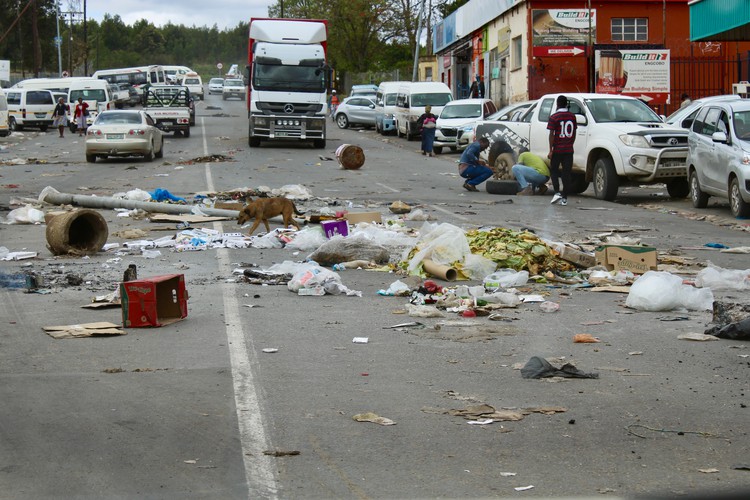Strike in Ngcobo put on hold after two weeks
86 casual workers are demanding permanent positions
Services at Engcobo Local Municipality were at a standstill for two weeks due to a strike. Municipal workers went on strike in solidarity with 86 casual workers who are demanding permanent positions.
The strike started on 8 October in the form of a sit-in. Then on 15 October, the workers took their grievances to the street, burning tyres and blocking roads. Garbage piled up on the streets of the small town.
On Monday, South African Municipal Workers Union (SAMWU) Ngcobo chairperson Bongani Mnyande said management asked workers to give them a week to look into their grievances and promised to get back to them by Friday. Workers started cleaning the streets.
Mnyande said, “Our demands are very clear; these 86 casual workers must be given permanent positions.”
Last Friday, worker Sive Tasana said, “We are not going to return to work until they hire all 86 casual workers. We have people who have been here for ten years and they are still casual workers … They must hire our people.”
Tasana said they had raised the issue in 2016 and that management promised to look into it, but there has been no result.
Nosakhele Mendu said she started as a casual worker for the municipality three years ago under the Expanded Public Works Programme. She is paid R90 a day. “If they can keep us here for three years that means they need us, so why don’t they hire us?” she asked. “We are tired of working for peanuts. We demand permanent jobs.”
On Friday, spokesperson for Ngcobo Local Municipality Lusizo Ntshinka said, “The employer says there’s no budget to hire temporary workers and [it] does not have a problem with job evaluation, but must be given time to follow the procedure.”
He said he hoped the ANC will intervene.
Support independent journalism
Donate using Payfast

Don't miss out on the latest news
We respect your privacy, and promise we won't spam you.
Next: Home Affairs reopens refugee office it closed in 2011
Previous: Fire leaves over 1,000 people homeless in Philippi
© 2018 GroundUp.
This article is licensed under a Creative Commons Attribution-NoDerivatives 4.0 International License.
You may republish this article, so long as you credit the authors and GroundUp, and do not change the text. Please include a link back to the original article.

